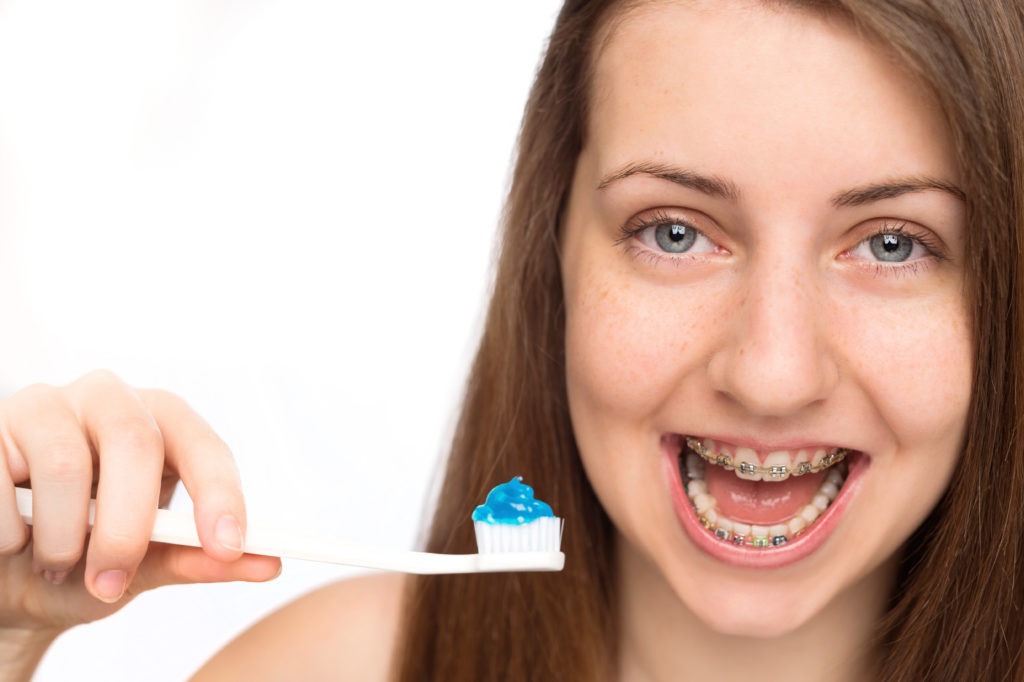When Should Your Child See An Orthodontist?
March 6, 2017


One of the questions we hear most often when discussing dental braces with patients is if having them will cause any pain. Generally speaking, the answer is no, particularly during the actual application of the braces. However, there may be a few days of mild soreness and discomfort after the orthodontic wire is engaged into the brackets. But what happens beyond that initial appointment? Before we get to that, let’s talk a little about how braces work!
Dental braces are used to treat a wide variety of dental issues, or malocclusions, including overbites, underbites, crossbites, and overcrowding. The two most common types of fixed dental braces used to realign the teeth are ceramic fixed braces and metal fixed braces. Both of these include brackets that are affixed to each individual tooth, and an archwire your orthodontist fits into the bracket slot that gently moves the teeth until they’re properly aligned. Elastic or wire ties are applied to hold the wire in place, although some orthodontists now use self-ligating brackets which don’t require rubber or wire ties to secure the wire.

Wondering what you can expect when getting braces? Dudley Smiles has put together a quick overview for you!
Placement day
The placement process itself should not be painful, but your teeth may feel more sensitive than usual. It will take some time to adjust to wearing braces, so foods that are difficult to chew should be avoided in favor of a softer diet based around liquids in the first few days after you get your braces.
The first few days after placement
While we wouldn’t necessarily call it painful, the first several days of braces can be uncomfortable. Your teeth are beginning the realignment process and aren’t yet used to the pressure of the archwires and elastic bands. Over-the-counter pain medication like Tylenol or ibuprofen can be taken as directed to relieve any mild soreness.
First week after placement
After five or six days, the initial discomfort associated with getting your braces should have mostly disappeared. Your teeth have gradually acclimated, and you can usually resume normal eating at this point.
Follow-up orthodontic appointments
Regular orthodontic appointments are necessary to allow your orthodontist to change the archwires and ties, and make adjustments to your braces. Since fixed braces work by gradually moving the teeth into a new and proper alignment, gentle pressure must be applied constantly. You may find that the first several days after an orthodontic adjustment are slightly uncomfortable.
If you find your braces are causing you pain or discomfort at any time, there are a number of ways to beat that before it gets the best of you. Let’s discuss a few of them in more detail!
Warm salt water rinse
This is great for the first few days after getting your braces on especially, although you can do it any time. It’s incredibly simple – just dissolve about a teaspoon of salt into a small cup of warm water, then swish it in your mouth a few times before spitting it out. This really helps to reduce inflammation and will also help heal any sores that might occur.

Cold foods
Not that you need an excuse to eat ice cream, but here’s your chance! Cold foods like ice cream, frozen yogurt, popsicles, and ice water are excellent at reducing pain resulting from braces (unless your teeth are sensitive to cold, of course!) A cold pack on either side of your face may also be helpful.
OTC pain killers
As mentioned above, medications like Tylenol and ibuprofen can help reduce the pain of getting your braces put on, or tightened during one of your regular follow-up appointments. Make sure you follow the instructions on the bottle, and consult your orthodontist before taking anything.
Orthodontic relief wax
